Find Help
More Items From Ergsy search
-

Top 5 questions about having a general anaesthetic
Relevance: 100%
-
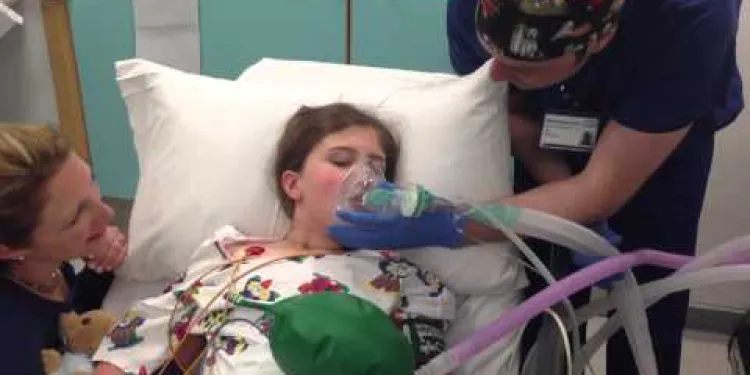
My General Anaesthetic: What's Going To Happen? Sarah's Story at Worcestershire Royal Hospital.
Relevance: 86%
-
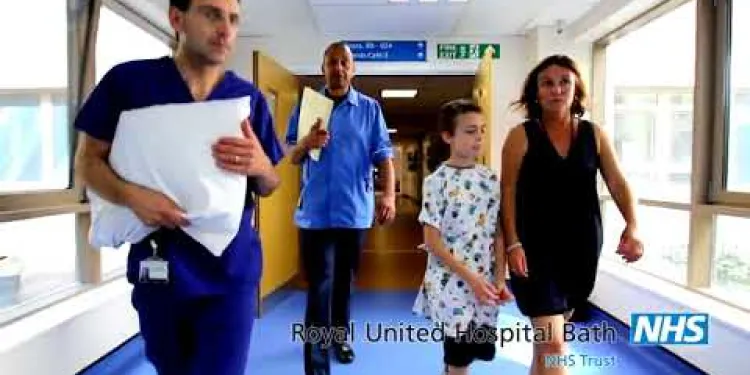
Having an anaesthetic for your operation - for over 8s
Relevance: 73%
-
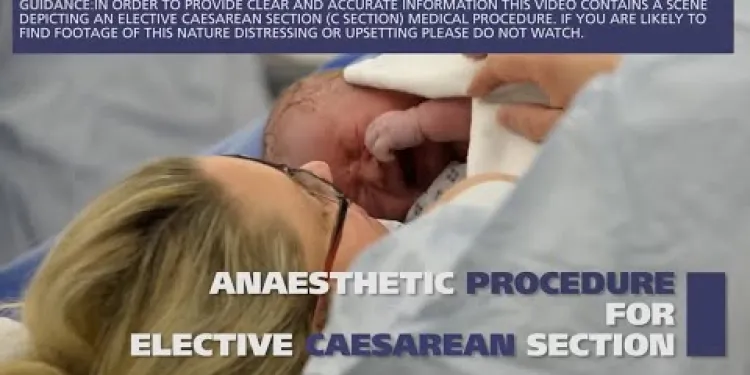
Anaesthetic procedure for elective caesarean section (C section)
Relevance: 68%
-

Your anaesthetic choices for your planned hip or knee replacement surgery at the RUH.
Relevance: 63%
-
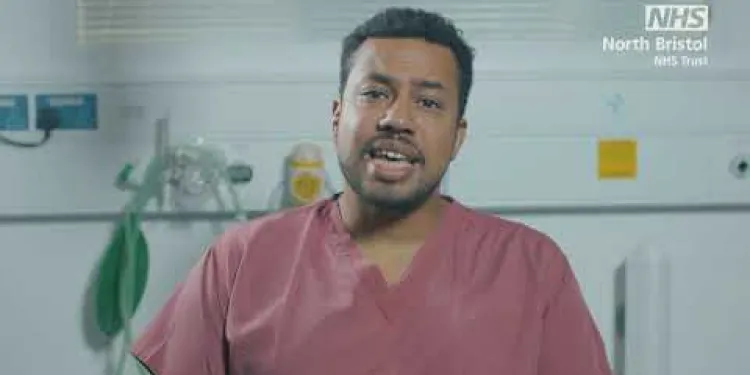
Surgery under local anaesthetic in the Minor Ops Unit at North Bristol NHS Trust
Relevance: 61%
-

What is the difference between the Attorney General and the Solicitor General in the UK?
Relevance: 43%
-

What is the Attorney General in the UK?
Relevance: 41%
-

What is the role of the Attorney General in the UK?
Relevance: 39%
-

Is the Attorney General part of the UK government?
Relevance: 39%
-

Is the Attorney General in the UK a member of the cabinet?
Relevance: 39%
-

Is the position of Attorney General unique to the UK?
Relevance: 39%
-

Who appoints the Attorney General in the UK?
Relevance: 39%
-

What is the Attorney General’s Office?
Relevance: 39%
-

Does the Attorney General in the UK have to be a lawyer?
Relevance: 37%
-

Can the Attorney General override a court decision?
Relevance: 35%
-

How long does the Attorney General serve in the UK?
Relevance: 35%
-

What is the historical significance of the Attorney General's role in the UK?
Relevance: 35%
-

Can the Attorney General in the UK intervene in legal proceedings?
Relevance: 35%
-

Does the Attorney General in the UK handle prosecution cases?
Relevance: 35%
-

Is the Attorney General involved in human rights issues?
Relevance: 35%
-

How is the Attorney General involved in the legislative process in the UK?
Relevance: 35%
-

Can the Attorney General be involved in judicial reviews?
Relevance: 35%
-

How does the Attorney General relate to the judiciary?
Relevance: 35%
-

Does the Attorney General have a role in international law?
Relevance: 33%
-

Can the Attorney General of the UK make decisions on public prosecution matters?
Relevance: 32%
-

What influence does the Attorney General have over the legal profession?
Relevance: 31%
-
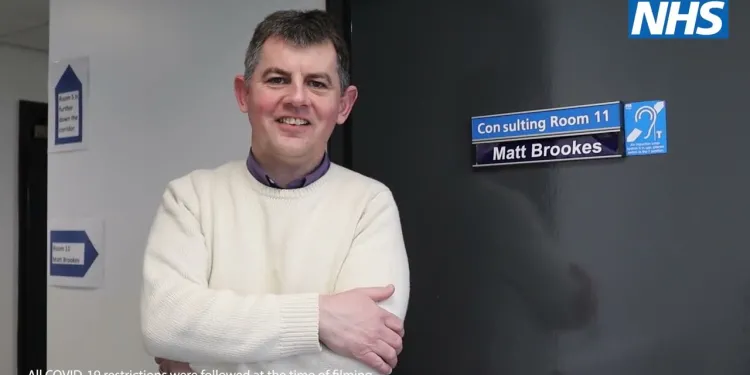
What is a social prescriber, and how do they support general practice?
Relevance: 30%
-

How is health-related anxiety different from general anxiety?
Relevance: 29%
-

What is spinal anaesthesia?
Relevance: 27%
-

What is eczema? General Information
Relevance: 27%
-

Is spinal anaesthesia safe for a Caesarean section?
Relevance: 26%
-
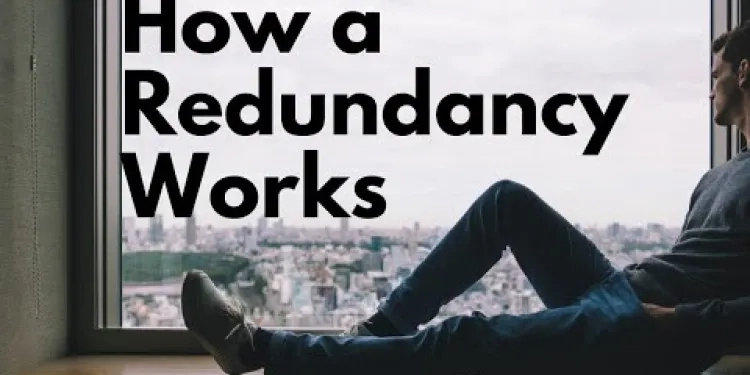
HOW A REDUNDANCY WORKS - General Information
Relevance: 26%
-
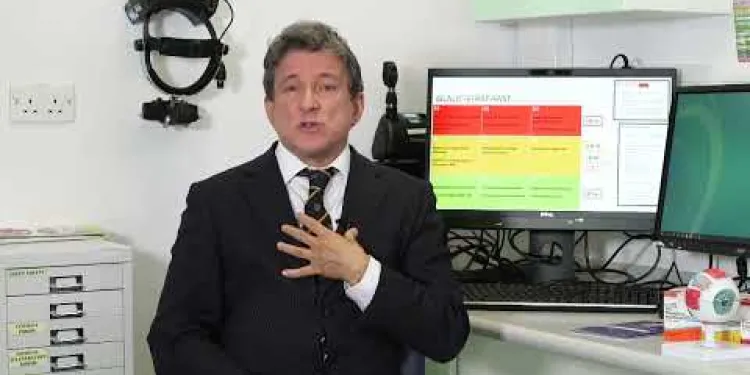
Glaucoma: general side effects of eye drops
Relevance: 26%
-

Spinal Anaesthesia for Caesarean Section
Relevance: 25%
-

What are some general recommendations for medication use during pregnancy?
Relevance: 23%
-

What type of anaesthesia is used during hip replacement surgery?
Relevance: 23%
-

Where can I find general information about air pollution and asthma?
Relevance: 23%
-

Can I breastfeed immediately after a Caesarean section under spinal anaesthesia?
Relevance: 21%
-

How much caffeine is generally considered safe for people with high blood pressure?
Relevance: 21%
Top 5 Questions About Having a General Anaesthetic
1. What is General Anaesthetic?
General anaesthetic is a medically induced state of unconsciousness where patients do not feel pain or other sensations during surgery. It involves the administration of drugs, typically through an injection or inhalation, which inhibit the normal function of the central nervous system, rendering the patient entirely unaware and immobilised.
2. How is General Anaesthetic Administered?
In the UK, general anaesthetic is commonly administered by a consultant anaesthetist. It can be given through an intravenous line (a needle inserted into a vein) or via inhalation through a mask. The anaesthetist monitors and adjusts anaesthetic levels throughout the surgery to ensure the patient remains unconscious and pain-free.
3. What Are the Risks and Side Effects?
While general anaesthesia is generally safe, it does come with some risks and potential side effects. Common side effects include nausea, vomiting, sore throat, dizziness, and shivering. Though rare, serious complications like allergic reactions, heart attacks, strokes, or breathing difficulties can occur. Patients are carefully monitored to mitigate these risks.
4. How Should I Prepare for Surgery?
Patients should follow specific guidelines provided by their healthcare team. This typically includes fasting for several hours before the procedure to avoid aspiration. Patients should also disclose their full medical history and any medications they are taking to their medical team to ensure safe administration of the anaesthetic.
5. What Happens During Recovery?
After surgery, patients are moved to a recovery room where they are closely monitored as they wake up from the anaesthetic. Some grogginess and disorientation are normal as the drugs wear off. Full recovery times vary depending on the type and duration of surgery, and patients may need someone to drive them home and stay with them for the first 24 hours post-operation.
Top 5 Questions About Having a General Anaesthetic
1. What is General Anaesthetic?
General anaesthetic is medicine that makes you sleep during surgery. It stops you from feeling pain. It is given as a needle in your arm or breathing through a mask. It helps you not be aware of anything while surgery is happening.
2. How is General Anaesthetic Administered?
A special doctor called an anaesthetist gives the anaesthetic. They use a needle in your arm or a mask to help you breathe it in. The anaesthetist makes sure you stay asleep and don’t feel pain during your surgery.
3. What Are the Risks and Side Effects?
General anaesthetic is safe for most people, but it can have side effects. Some side effects are feeling sick, having a sore throat, or feeling dizzy. Very rarely, serious problems can happen. The doctors watch you carefully to keep you safe.
4. How Should I Prepare for Surgery?
Before surgery, you need to follow instructions from your doctor. You shouldn't eat or drink for some hours before. Tell your doctor about your health and any medicine you take. This helps them give you a safe anaesthetic.
5. What Happens During Recovery?
After surgery, you go to a room where doctors watch you wake up. You might feel sleepy or confused as the medicine wears off. Recovery takes different times. You may need someone to take you home and stay with you for a day after your surgery.
Frequently Asked Questions
What is a general anaesthetic?
A general anaesthetic is a medication that induces unconsciousness and prevents pain during surgery. It affects your entire body, rendering you completely unaware and unable to feel pain.
How is a general anaesthetic administered?
A general anaesthetic can be administered either through a mask, breathing tube, or through an intravenous (IV) line in your arm or hand.
Will I feel any pain during the surgery with a general anaesthetic?
No, a general anaesthetic ensures that you remain unconscious and pain-free during the surgery.
What risks are associated with general anaesthesia?
While generally safe, risks include allergic reactions, breathing difficulties, and heart complications. These risks are higher in patients with certain medical conditions or in longer surgeries.
How long does it take to recover from a general anaesthetic?
Recovery times vary, but most people feel groggy for a few hours post-surgery. Full recovery, where you feel completely normal, may take from a few hours to a couple of days.
Can everyone have a general anaesthetic?
Most people can safely receive a general anaesthetic. However, specific medical conditions or allergies might require special considerations or alternative anaesthesia methods.
Is it necessary to fast before receiving a general anaesthetic?
Yes, you will usually be required to fast for at least six hours before the procedure to reduce the risk of vomiting and aspiration during surgery.
Can I drive myself home after having a general anaesthetic?
No, you should not drive, operate heavy machinery, or make important decisions for at least 24 hours after having a general anaesthetic as your judgement and coordination may still be impaired.
What are the common side effects of general anaesthesia?
Common side effects include sore throat, nausea, vomiting, dizziness, and shivering. These usually resolve within a few hours to a few days.
How do I prepare for surgery involving general anaesthesia?
Follow pre-operative instructions which typically include fasting, avoiding certain medications, and arranging for someone to accompany you to and from the hospital.
Will I need to stay in the hospital overnight after having a general anaesthetic?
It depends on the type of surgery and your overall health. Some procedures require an overnight stay while others allow you to go home the same day.
Who administers the general anaesthetic during surgery?
A trained anaesthetist, who is a doctor specialising in anaesthesia and pain management, will administer and monitor the anaesthetic throughout your surgery.
Can I have a reaction to the general anaesthetic?
While rare, some individuals may experience allergic reactions to anaesthetic drugs. Your anaesthetist will review your medical history to minimise this risk.
How do anaesthetists ensure the right dosage of anaesthetic for each patient?
Anaesthetists calculate the dosage based on multiple factors including your age, weight, medical history, and the type of surgery to ensure the anaesthetic is effective and safe.
What should I inform my anaesthetist before the procedure?
Inform your anaesthetist about any medications you're taking, your medical history, allergies, previous reactions to anaesthesia, and whether you smoke or consume alcohol.
What is a general anaesthetic?
A general anaesthetic is medicine that makes you go to sleep. It helps you not feel anything during an operation. You won't remember the operation.
Here are some ways to help understand:
- Ask a doctor or nurse to explain.
- Watch a video for kids about hospital visits.
- Read a simple book or story about going to the hospital.
A general anaesthetic is a special medicine. It makes you fall asleep and stops you from feeling pain during an operation. It works on your whole body so you don't know what's happening and can't feel anything.
How do you get a general anaesthetic?
A general anaesthetic is a medicine that makes you sleep during an operation so you don’t feel anything.
You can get it in these ways:
- Through a needle in your arm
- By breathing in gas from a mask
Doctors and nurses will check you to keep you safe.
It helps to have someone explain things to you. You can also ask questions if you are unsure.
You can get a general anaesthetic in different ways. The doctor can give it to you through a mask, a breathing tube, or a small needle in your arm or hand.
Will the surgery hurt if I'm asleep from medicine?
No, when you have a general anaesthetic, you will be asleep and not feel any pain during the operation.
What are the risks of being put to sleep for an operation?
This is mostly safe. But there can be some risks. Some people might have allergic reactions. Some might have trouble breathing. Others might have heart problems. These risks are bigger if you already have other health problems or if the surgery takes a long time.
Here are some things that can help:
- Tell your doctor about your allergies.
- Tell your doctor all about your health problems.
- Talk to the doctor if you feel worried.
How long does it take to feel better after a general anaesthetic?
After you have a general anaesthetic, it can take a little while to feel back to normal.
Here are some things that might help:
- Take deep breaths and rest.
- Drink water or juice to help your body.
- Ask someone to stay with you.
If you feel worried or not better after a few days, talk to a doctor or nurse. They know how to help.
After surgery, people feel sleepy and tired for a few hours. It can take a few hours or a couple of days to feel normal again.
Can everyone have a general anaesthetic?
A general anaesthetic makes you sleep during an operation. Most people can have it. But some people can't because of their health.
Doctors will check if it is safe for you. They ask about your health and any medicine you take.
If you have questions, talk to your doctor. You can ask someone to help if you find it hard to understand. You can also use things like easy-to-read guides or pictures.
Most people can have a general anaesthetic safely. But some health problems or allergies might need special care or different types of anaesthesia.
Do you need to stop eating and drinking before having a general anesthetic?
Before you go for surgery, the doctor might say you need to stop eating and drinking. This is for your safety. It helps your tummy stay empty. An empty tummy is best when you get sleepy medicine.
Here is what you can do to help:
- Ask the doctor or nurse when to stop eating and drinking. They will tell you the right time.
- Use a reminder. You can ask someone to remind you when to stop eating and drinking.
- Write it down. Make a note of it so you don't forget.
Yes, you need to stop eating and drinking for at least six hours before your surgery. This helps keep you safe and stops you from being sick during the operation.
Can I drive myself home after having a general anaesthetic?
After a medical procedure, doctors might give you special medicine to help you sleep. This is called a general anaesthetic.
If you have this medicine, it is not safe to drive a car or go home by yourself.
Ask someone you trust to pick you up and take you home.
You could use a calendar or alarm to remind you to make these plans before your appointment.
No, you should not drive, use big machines, or make big decisions for at least one day after having a general anaesthetic. This is because your thinking and movement might still be affected.
Tools that might help you remember: set a timer or use a reminder app on your phone.
What happens to your body after being put to sleep for surgery?
Doctors give medicine to help you sleep during an operation. This is called general anaesthesia.
Sometimes, this medicine can make you feel a bit unwell afterwards. Here are things you might feel:
- Feel sleepy or tired.
- Feel sick to your stomach.
- Having a sore throat.
- Feeling dizzy or wobbly.
If you feel these things, tell your nurse or doctor. They can help you feel better.
An idea to help you is to have someone with you after the operation. They can take care of you and help you get home safely.
Sometimes, people feel sick after taking medicine. You might get a sore throat, feel like you need to throw up, feel dizzy, or shiver. These feelings usually go away in a few hours or days.
How can I get ready for an operation with full sleep medicine?
Getting ready for an operation can feel scary, but here are some easy steps to help:
- Talk to the Doctor: Ask your doctor any questions you have about the operation.
- Do Not Eat or Drink: Your doctor will tell you when to stop eating and drinking before the operation. It is important to listen.
- Follow Instructions: Your doctor will give you instructions to follow before the operation. Make sure you do them.
- Bring Comfort Items: Bring a favorite toy or blanket to make you feel better and more relaxed.
- Have a Friend or Family: Make sure someone you trust goes with you to the hospital.
These steps can help you feel calm and ready for your operation.
Before your surgery, do what the doctor says. This usually means not eating or drinking for a while, not taking some medicines, and asking a friend or family member to go with you to and from the hospital.
Will I need to sleep at the hospital after having medicine to make me sleep?
Sometimes, doctors give you special medicine that makes you sleep during surgery. This is called a general anaesthetic. After you wake up, you might need to stay at the hospital to rest. The doctor will tell you if you need to stay overnight.
If you have questions, you can ask the nurse or your family. They can help you understand what will happen.
Using pictures or videos can help you learn more. You can also ask for a booklet with simple words and drawings to make it easier to understand.
It depends on what kind of surgery you have and how healthy you are. Some surgeries mean you need to stay in the hospital overnight. Other surgeries let you go home the same day.
Who gives you medicine to make you sleep during surgery?
During surgery, a special doctor gives you medicine to help you sleep so you don't feel anything.
They are called an anaesthetist.
If you feel nervous, you can:
- Ask the anaesthetist to explain what will happen.
- Bring a favorite toy or blanket for comfort.
- Practice taking deep breaths to feel calm.
A special doctor called an anaesthetist will give you medicine to make you sleep during your surgery. They will also make sure you are safe and comfortable while you are asleep so you won’t feel any pain.
Can I have a reaction to the sleepy medicine?
Sometimes people have a reaction to the sleepy medicine (called anaesthetic) used in operations.
Here are some things that might happen:
- Feel sick
- Feel dizzy or shaky
- Feel confused or sleepy when you wake up
If you are worried, tell the nurse or doctor. They can help you feel better.
It might help to bring a favorite toy or blanket. You can also ask for someone you like to stay close to you.
Sometimes, people can have allergies to medicine used to make them sleep during surgery. Your doctor will check your health history to make this as safe as possible for you.
How do doctors make sure patients get the right amount of sleep medicine?
Doctors use special medicine called anaesthetic to make patients sleep during operations. They must pick the right amount so it is safe. Here is how they do it:
- Check Patient Details: Doctors look at how old you are, how much you weigh, and your health.
- Use Machines: They use machines to watch your heart, breathing, and blood pressure.
- Tiny Changes: They can change the amount of sleep medicine if they need to.
- Team Help: Nurses and other doctors help to make sure you stay safe.
If you have questions, you can ask your doctor. Drawing pictures or using easy words might help you understand better. Family or friends can also help explain.
Doctors make sure you get the right amount of sleep medicine. They look at how old you are, how much you weigh, your health, and what kind of surgery you need. This keeps you safe and helps the medicine work well.
What should I tell the person who gives me medicine to make me sleepy during the procedure?
Before you have a procedure, you need to tell the doctor who helps you sleep:
- If you have any allergies. This means if any medicines or foods make you feel sick.
- If you take any other medicines. This helps them know if the sleepy medicine is safe for you.
- If you had problems with sleepy medicine before. This helps them be extra careful.
- If you have any health problems. Like if your heart or breathing isn't strong.
- If you are very worried or scared. It's okay to tell them and they can help you feel better.
Talking helps the doctor give you the right care.
Tell your anaesthetist about:
- Any medicines you take.
- Your health history.
- Any allergies you have.
- If you had any problems with anaesthesia before.
- If you smoke or drink alcohol.
Useful Links
This website offers general information and is not a substitute for professional advice.
Always seek guidance from qualified professionals.
If you have any medical concerns or need urgent help, contact a healthcare professional or emergency services immediately.
Some of this content was generated with AI assistance. We’ve done our best to keep it accurate, helpful, and human-friendly.
- Ergsy carfully checks the information in the videos we provide here.
- Videos shown by Youtube after a video has completed, have NOT been reviewed by ERGSY.
- To view, click the arrow in centre of video.
- Most of the videos you find here will have subtitles and/or closed captions available.
- You may need to turn these on, and choose your preferred language.
- Go to the video you'd like to watch.
- If closed captions (CC) are available, settings will be visible on the bottom right of the video player.
- To turn on Captions, click settings .
- To turn off Captions, click settings again.
More Items From Ergsy search
-

Top 5 questions about having a general anaesthetic
Relevance: 100%
-

My General Anaesthetic: What's Going To Happen? Sarah's Story at Worcestershire Royal Hospital.
Relevance: 86%
-

Having an anaesthetic for your operation - for over 8s
Relevance: 73%
-

Anaesthetic procedure for elective caesarean section (C section)
Relevance: 68%
-

Your anaesthetic choices for your planned hip or knee replacement surgery at the RUH.
Relevance: 63%
-

Surgery under local anaesthetic in the Minor Ops Unit at North Bristol NHS Trust
Relevance: 61%
-

What is the difference between the Attorney General and the Solicitor General in the UK?
Relevance: 43%
-

What is the Attorney General in the UK?
Relevance: 41%
-

What is the role of the Attorney General in the UK?
Relevance: 39%
-

Is the Attorney General part of the UK government?
Relevance: 39%
-

Is the Attorney General in the UK a member of the cabinet?
Relevance: 39%
-

Is the position of Attorney General unique to the UK?
Relevance: 39%
-

Who appoints the Attorney General in the UK?
Relevance: 39%
-

What is the Attorney General’s Office?
Relevance: 39%
-

Does the Attorney General in the UK have to be a lawyer?
Relevance: 37%
-

Can the Attorney General override a court decision?
Relevance: 35%
-

How long does the Attorney General serve in the UK?
Relevance: 35%
-

What is the historical significance of the Attorney General's role in the UK?
Relevance: 35%
-

Can the Attorney General in the UK intervene in legal proceedings?
Relevance: 35%
-

Does the Attorney General in the UK handle prosecution cases?
Relevance: 35%
-

Is the Attorney General involved in human rights issues?
Relevance: 35%
-

How is the Attorney General involved in the legislative process in the UK?
Relevance: 35%
-

Can the Attorney General be involved in judicial reviews?
Relevance: 35%
-

How does the Attorney General relate to the judiciary?
Relevance: 35%
-

Does the Attorney General have a role in international law?
Relevance: 33%
-

Can the Attorney General of the UK make decisions on public prosecution matters?
Relevance: 32%
-

What influence does the Attorney General have over the legal profession?
Relevance: 31%
-

What is a social prescriber, and how do they support general practice?
Relevance: 30%
-

How is health-related anxiety different from general anxiety?
Relevance: 29%
-

What is spinal anaesthesia?
Relevance: 27%
-

What is eczema? General Information
Relevance: 27%
-

Is spinal anaesthesia safe for a Caesarean section?
Relevance: 26%
-

HOW A REDUNDANCY WORKS - General Information
Relevance: 26%
-

Glaucoma: general side effects of eye drops
Relevance: 26%
-

Spinal Anaesthesia for Caesarean Section
Relevance: 25%
-

What are some general recommendations for medication use during pregnancy?
Relevance: 23%
-

What type of anaesthesia is used during hip replacement surgery?
Relevance: 23%
-

Where can I find general information about air pollution and asthma?
Relevance: 23%
-

Can I breastfeed immediately after a Caesarean section under spinal anaesthesia?
Relevance: 21%
-

How much caffeine is generally considered safe for people with high blood pressure?
Relevance: 21%


